Become a Dog Trainer
Our professional dog training school offers online and in-person certifications
designed to help you fast track your dreams of becoming a dog trainer
Earn a nationally recognized, professional dog training certification
Personalized mentorship and 1-on-1 time with certified instructors
Master reward-based, force-free methodology of dog training
Job placement assistance and resources to start your own business
About our dog training school and certifications

In-Person Dog Training Programs
Start your dog training career in just a few months with
in-person training and earn a nationally-recognized
dog training certification.
- Hands-on learning
- Facility specialized for pet education
- Learn service dog training
- Explore dog sport training
- Job placement assistance

Online Dog Training Program
Learn the essential skills needed to start a career in the
pet industry. This hands-on, online program is the perfect
starting point towards becoming a dog trainer online.
- Online and self-paced
- Full access to a dedicated instructor
- Access to resources after graduation
- Community for support and collab
- Job placement assistance

I have my own successful pet business now,
and part of that is because of APC!
I use the skills I learned at APC every single day. The training portion of the school is well worth the money. The instructors are the best kind of people. They are patient and kind and make sure you truly understand how to train, the process of how they learn, different techniques, etc. If you are considering a career in this field this is a good place to see if dog training is your passion. I sure found mine! Also, administrative people are great! Very helpful and made everything as easy as possible. I made a lot of friends here, and it has opened a lot of doors for me, and my business Medlin Pet Company.

Pet companies that hire our students
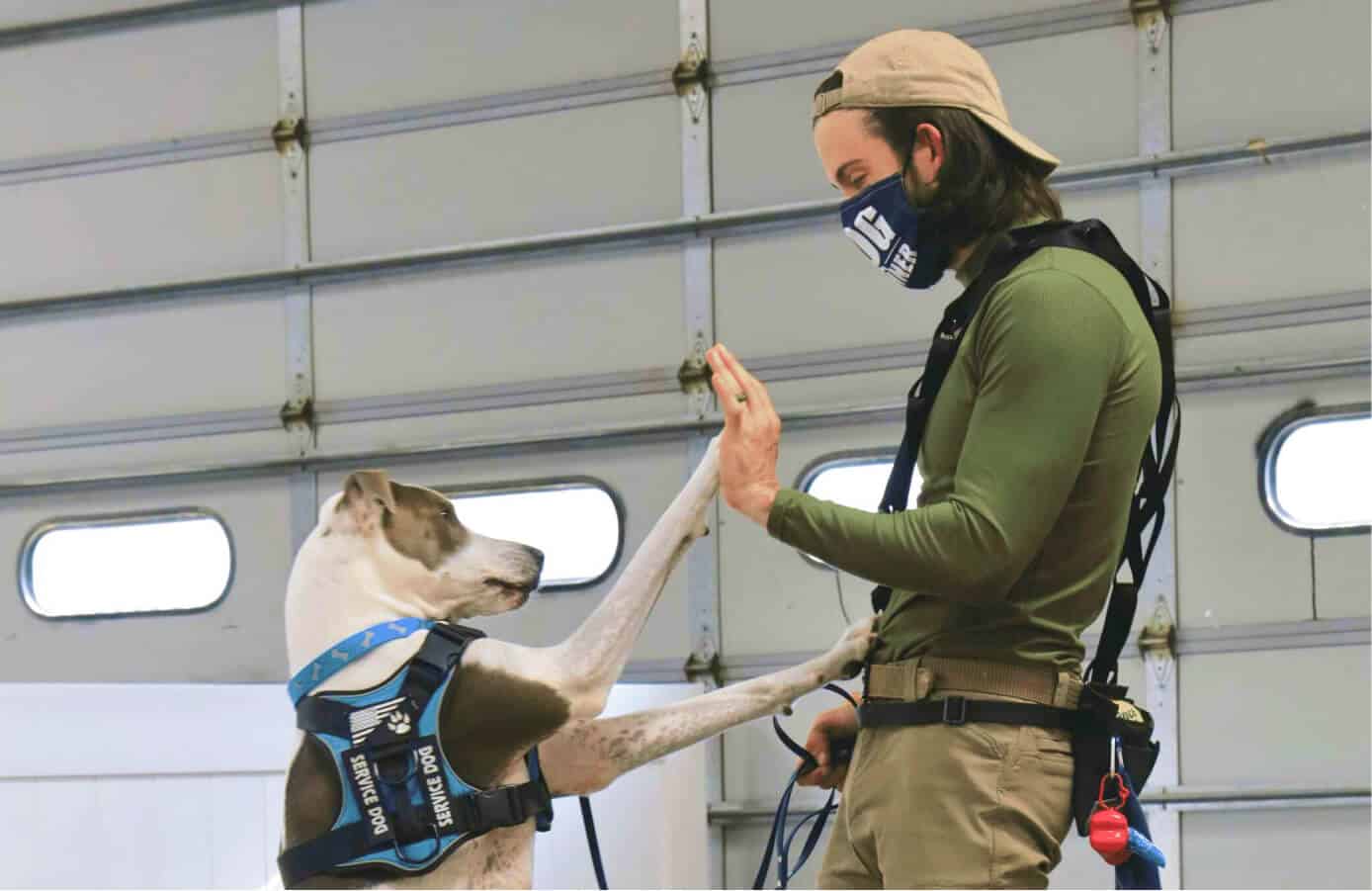
Dog trainer requirements & qualifications
If you are wondering how to become a dog trainer, the pathway isn't universally defined. However, certain prerequisites and personal traits can make the journey smoother and more successful. Here's a brief look at the dog trainer requirements and qualifications:
- A strong understanding of dog behavior and breeds
- Experience handling dogs, either personally or professionally
- Certifications from a reputable dog training school
- Excellent communication skills, empathy, and patience

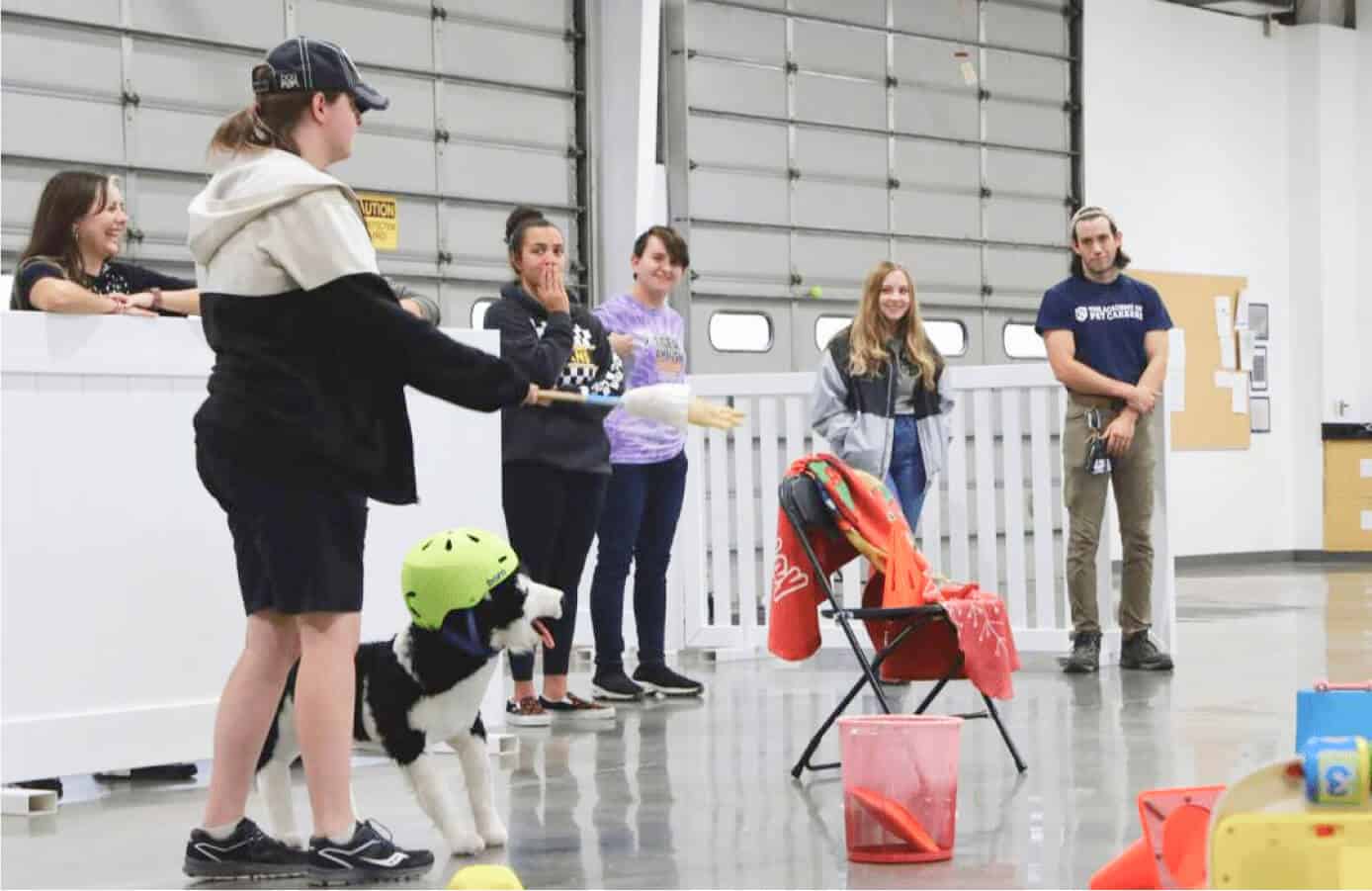
How much do dog trainers make?

Why attend a dog training school?
We know you have many options for dog training education. It is important for you to understand and appreciate the benefits of each option. An online education may offer more convenience and flexibility, finding a mentor may be a cheaper alternative, but a hands-on dog trainer school offers the greatest benefits, including:
- It is more comprehensive.
- Courses can be customized.
- They speed up the education process.
- You learn from professionals who know how to teach.
- They are more fun!
Don't take our word for it. Read testimonials from past students.

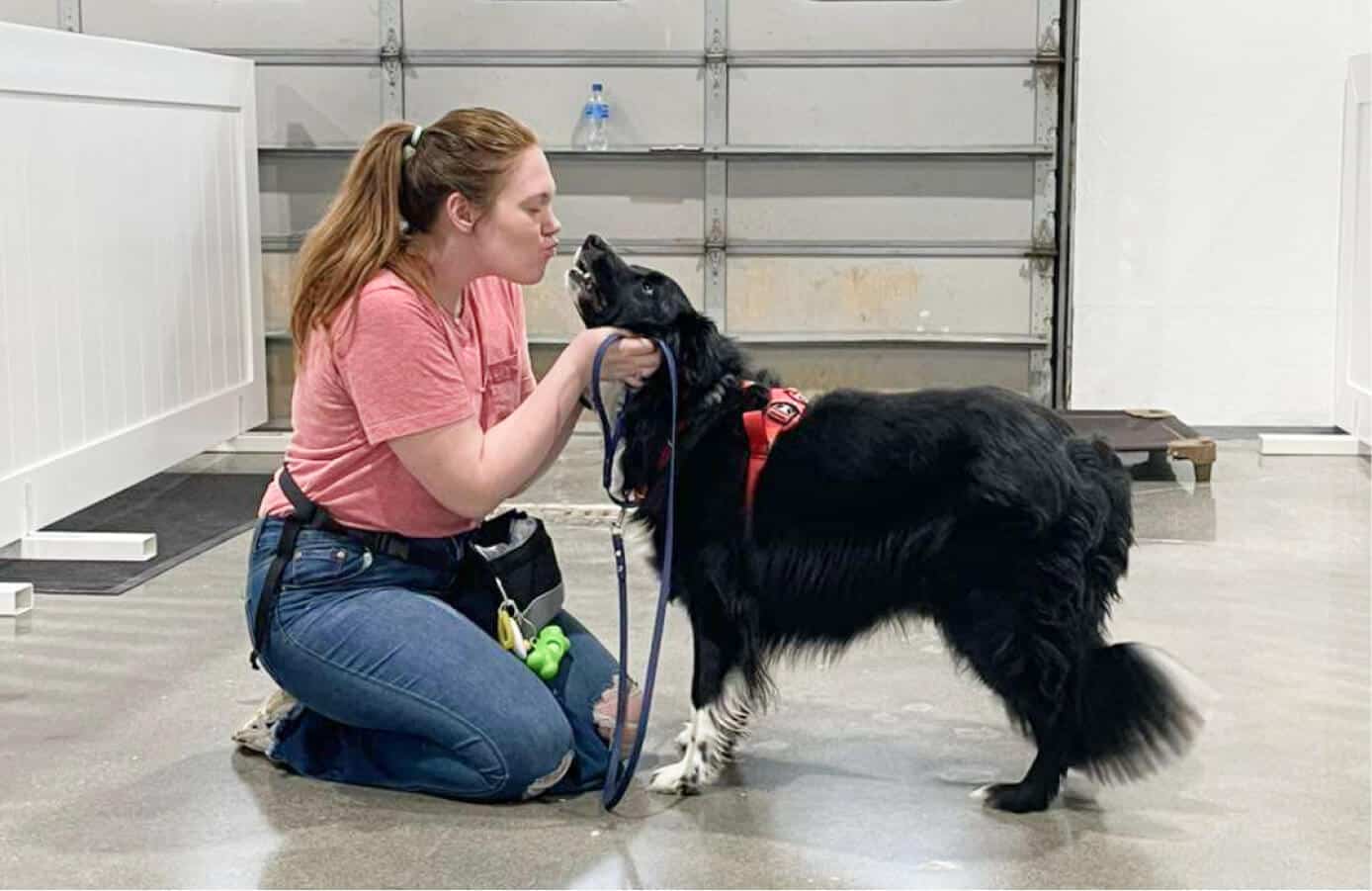
Do you have to have a license to train dogs?
In the United States, there are currently no formal licensing requirements, meaning anyone can claim to be a professional dog trainer. This could change in the near future. Some states are starting to pursue regulations and licensing requirements for dog trainers, aiming to elevate the profession's standards and ensure that trainers have a fundamental understanding of dog behavior and training techniques. Learn More.
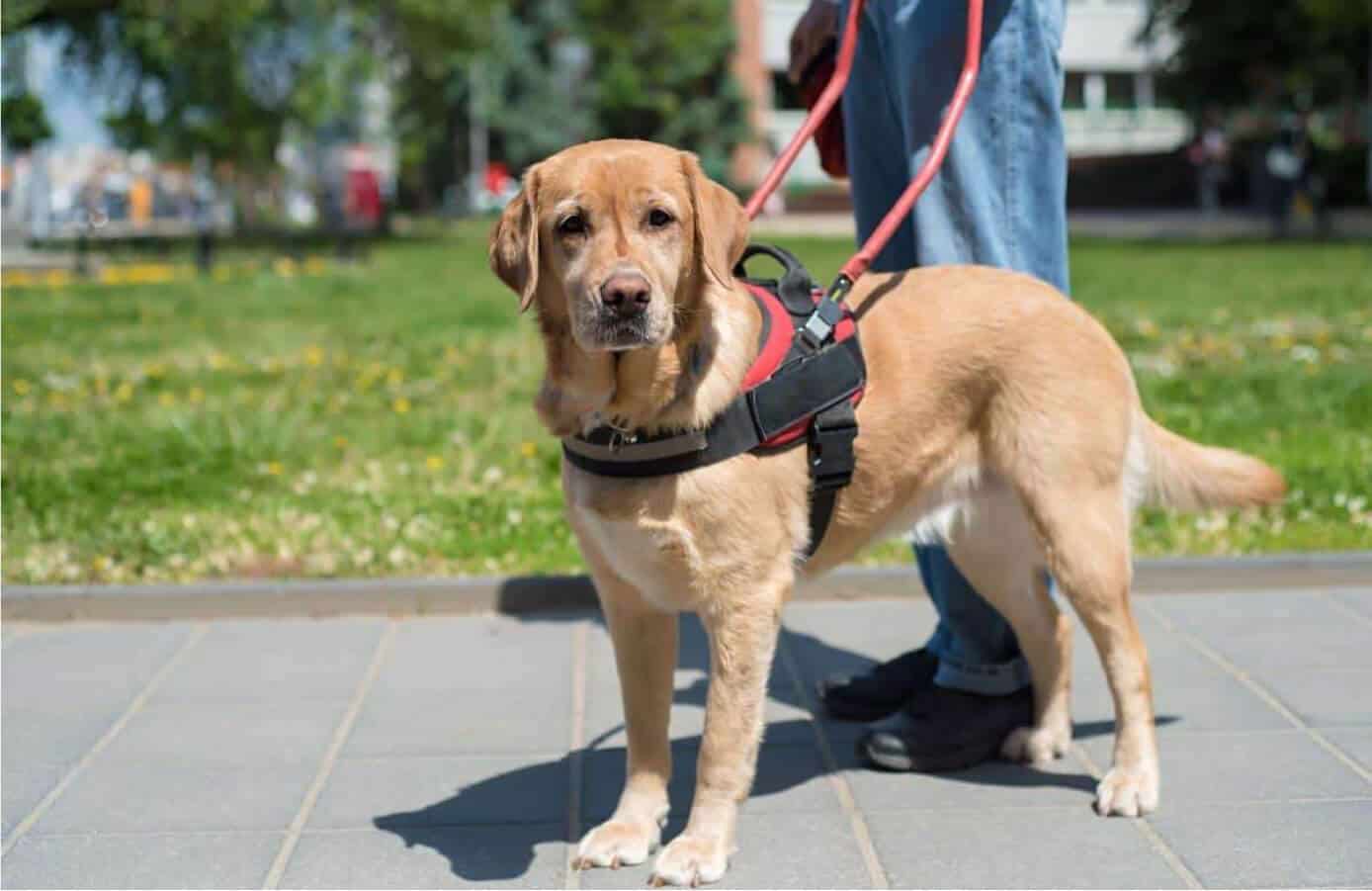
Learn to train service dogs
We offer a service dog training program for those student who wish to take their training to the next level. Bundled with other advanced skills such as scent detection training, we offer a Specialized Trainer Program. This program allows students the option of providing niche services to their clients upon graduation. Learn more.
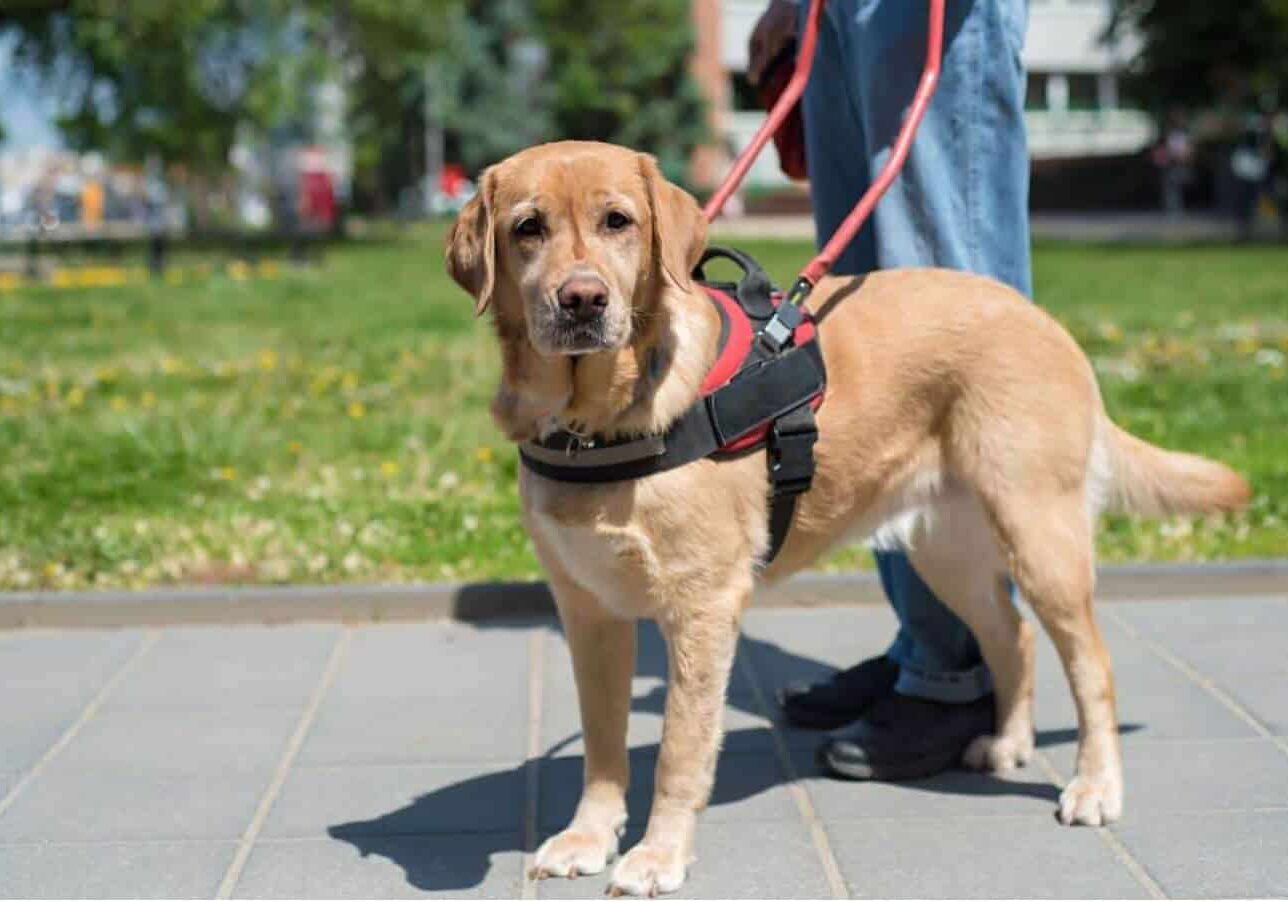

What is Positive Reinforcement training?
When talking about training dogs, there are a handful of popular methodologies, and they have varying degrees of success when measuring desired results and side effects. Positive reinforcement training is the primary methodology taught at The Academy of Pet Careers. Not only do we believe it is the most effective method of training, but results have shown that it helps to create a longer lasting positive relationship with your pet. Learn More.
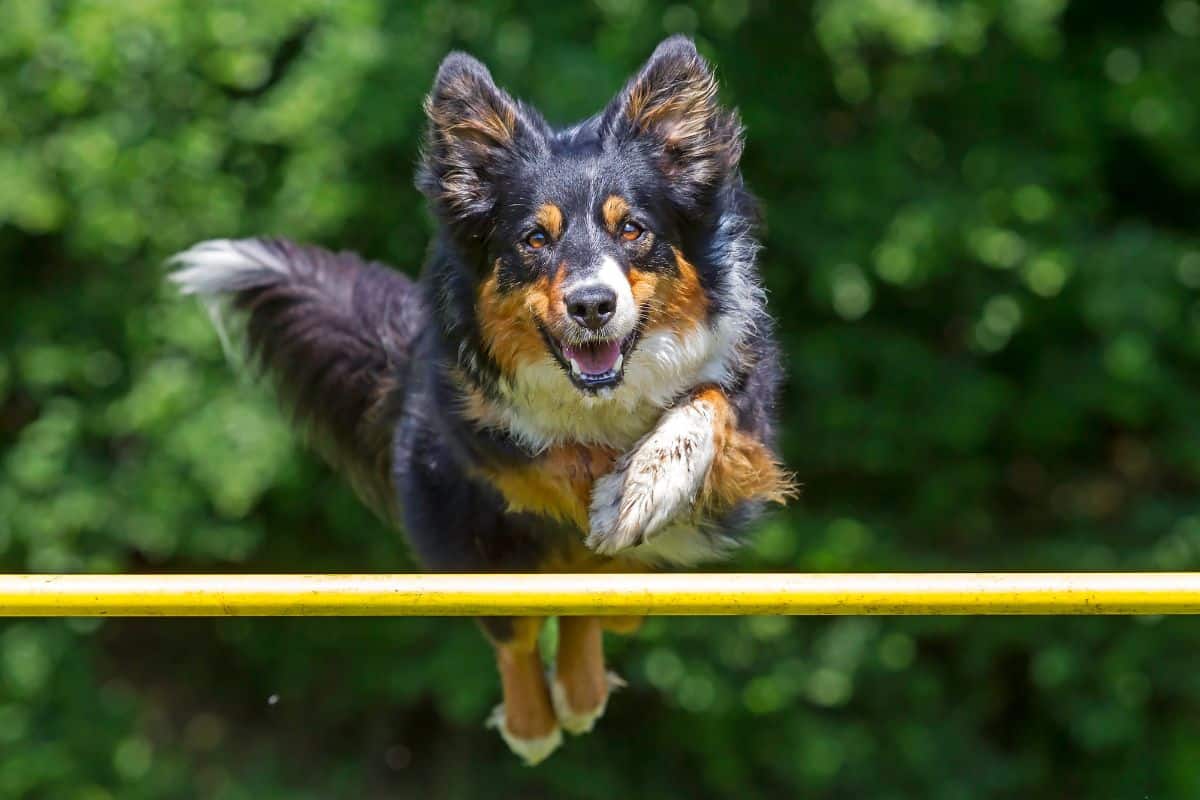
Learn to train dog sports
In our Specialized Dog Training Program, students will be introduced to the world of dog sports. Whether you wish to pursue a career in competitive obedience or hosting public sport classes for enrichment, dog sports are a great tool to keep training fun and add income potential. Our dog sport program will introduce students to 10+ dog sports, with a heavy focus in agility and nose work. Other sports include canine freestyle, dock diving, treibball, disc dog, rally obedience, and more.
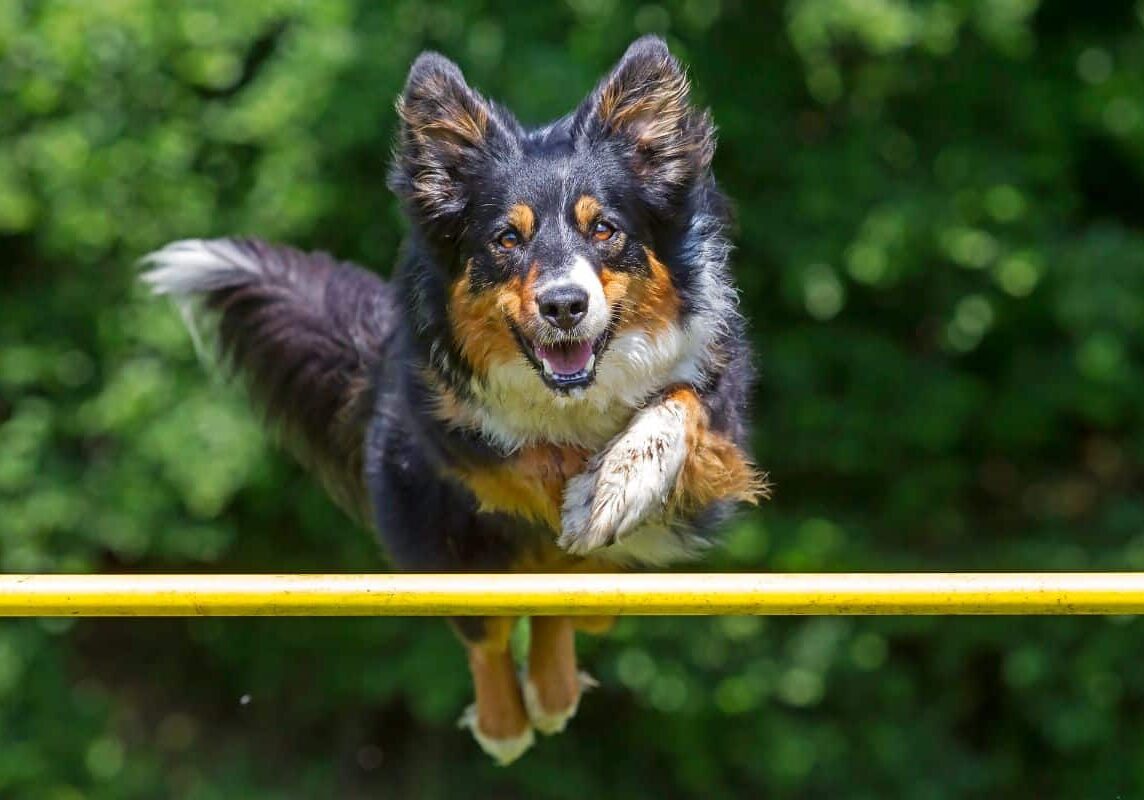

Want to start a dog training business?
Building a dog training business from the ground up is no small task, but with careful planning, hard work, and a relentless passion for helping dogs and their owners, you'll set the stage for a successful venture. Remember, the journey of a thousand miles begins with a single step. Your first step could be right here, right now! Embarking on a journey to become a dog trainer is exciting and fulfilling. Though the path may require dedication and patience, the reward of helping dogs and their owners live harmoniously is immeasurable. So, take that first step towards your dream career today, and soon, you could be making a significant difference in the lives of dogs and their human companions.

Job placement to help you find a job as a trainer
Securing your first dog training job is a crucial milestone in your career journey. Our dedicated job placement specialists will guide you through the process of building your resume, applying for jobs, and preparing you for your interviews. We will even help you prospect for hiring businesses if you are having trouble finding a job in your area. The pet care industry is in need of qualified dog trainers, so don't let your fear of not getting a job stop you from pursuing your dreams.

Frequently Asked Questions
Our dog training school offers in-person or online programs focused on training pet dogs. We have additional programs specializing in skills such as service animal training and dog sports. In-person programs provide a more hands-on experience, while online programs offer flexibility for self-paced learning.
Most dog training schools have minimal prerequisites, such as a high school diploma or equivalent. To attend a dog training program at the APC, you must be 18 years of age for an in-person program or 16 years of age for an online program. No other experience is necessary.
The duration of dog training programs can vary. Most schools will have programs ranging from 12-weeks to 6 months, with a few exceptions. Length can be an important deciding factor, but shorter programs will not provide the same level of proficiency as longer ones. At the APC, in-person programs range from 3 to 6 months long while online is a 1-year program.
Certified dog trainers can work in various settings, including pet training centers, animal shelters, veterinary clinics, and as independent trainers. The demand for qualified dog trainers is generally high and the skills required to be a professional dog trainer translate well into any animal career.
While a dog training certification is not required, it can significantly enhance your credibility and job prospects as a professional dog trainer. Many clients prefer to work with certified trainers.
There are currently no licensing requirements in the U.S. for professional dog trainers. Learn more about licensing versus certification.
The cost of dog training programs can vary widely depending on the school, program type, location, and format. For in-person dog training programs focused on pet training, you should expect to pay between $5,000 and $10,000, but specialty skill classes can be as high as $20,000 to attend. Online programs will range between $3,000 and $6,000 for a comprehensive pet training program.
Hands-on programs provide practical experience working with dogs in real-life situations, while online programs offer flexibility and self-paced learning. The choice depends on your learning style, goals, funds for education, and availability.
As a graduate of The Academy of Pet Careers, you will earn a nationally recognized certification that proves that you met the high standard of proficiency set forth by the APC. Graduates will receive a badge and letters to represent your accomplishments and make you more marketable to clients.
12 Best Dog Training Books: Expert Recommended
Welcome to our comprehensive guide on the best dog training books! At the Academy of Pet Careers, we believe in empowering both dogs and their owners through effective training methods and reliable resources. Whether you’re a seasoned trainer or a novice dog parent, these books will enrich your understanding and strengthen your bond with your…
Read More2024 Pet Industry Conferences & Trade Shows
Explore our curated list of 55+ pet industry events that cater to a diverse range of pet professionals. Whether you’re a passionate pet groomer, a visionary entrepreneur in the pet tech space, a dedicated veterinarian, or a retail aficionado specializing in pet products, there’s an event tailored just for you. Discover the latest trends,…
Read More100+ Dog Training Business Name Ideas for 2024
Choosing the perfect name for your dog training business is a crucial step towards building a strong brand identity and attracting the right clientele. A well-crafted business name not only communicates the essence of your training services but also leaves a lasting impression on potential clients. In the world of dog training, where trust, expertise,…
Read More







